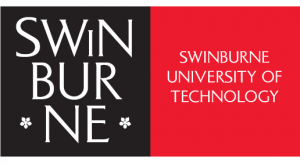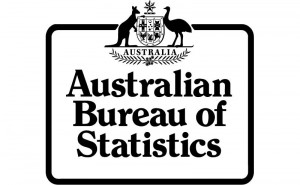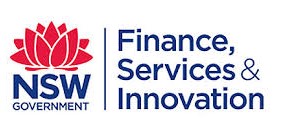6 February 2019, Wednesday
|
| TIME |
AGENDA |
|
|
AI IN STREAMLINING GOVERNMENT ADMINISTRATIONS, OPERATIONS AND SERVICE DELIVERY |
|
| 09:00 |
Welcoming Speech, Opening Remarks & Thank You Sponsor Speech by Conference Producer |
|
| 09:15 |
Keynote: Adopting a Whole-of-Government AI Strategy to Increase Efficiency, Reduce Operational Costs, Improve Service Delivery and Increase Citizen Engagement
- Augmenting policy and resource allocation decisions thereby improving effectiveness of policy with optimized staff and resource allocation and citizen satisfaction from predictive citizen sentiment
- Optimizing staffing and resource availability with improved efficiency of better staff and infrastructure utilization from service and resource demand forecasting
|
|
|
|
|
| 09:45 |
AI in Enhancing Government’s Productivity: How AI and Robotic Process Automation Will Slash Paperwork Burdens, Reduce Manual and Repetitive Tasks with Bots
- Reducing administrative burden and workload with Robotic Process Automation and Intelligent Automation while improving public service quality with decreased response time and increased accuracy and consistency
|
|
 |
Capt. Adam Allica
Director of Navy Innovation and Continuous Improvement
Royal Australian Navy |
 |
| 10:15 |
Morning Refreshments & Networking
|
|
|
TRANSFORMING COMMUNICATIONS BETWEEN CITIZENS AND GOVERNMENT USING CHATBOTS |
|
| 10:30 |
The AI Journey Begins with A ‘Single View of the Citizen’
|
|
 |
Andrew Ford
Information Strategist & Enterprise Architect Consultant
Teradata
|
 |
 |
Amanda Purdy
Senior Industry Consultant
Teradata |
 |
11:00
|
Developing Next Generation Hospitals and Healthcare Delivery with AI and Machine Learning: How AI, Chatbots and Virtual Reality are Transforming Patient Care and Experience
|
|
 |
Paul Grant
Former Director Service Design
Australian Digital Health Agency
|
|
| 11:30 |
Citizen Attitudes Towards AI in Government, What Governments Can Do to Build Trust and Confidence, and How Do Address Questions of Ethical Algorithms and Principles |
|
 |
Miguel Carrasco
Senior Partner and Managing Director
The Boston Consulting Group |
 |
| 12:00 |
How Predictive Analytics and AI Can Data Mine Public Sentiments and Help to Improve on Policy-Making
- Opinion mining, which uses the latest advances in artificial intelligence (AI) to mine public opinion for sentiment. By analyzing online public opinion, governments can now access a set of insights that can shape strategy and better measure the public’s experience of their policies and services.
- Combining AI and human understanding provides the ability to gather and process huge data sets and still gain an accurate understanding of public sentiment.
- By tapping into the text analysis powers of artificial intelligence, and by overlaying it with the refinement of crowd-based analysis, the world of opinion mining is set to change the way governments conduct research, make decisions and measure the impact of these decisions
|
|
 |
Arash Shahriari, PhD
Data Scientist, Innovation and Data Analytics, Transport Canberra and City Services Directorate
ACT Government |
 |
| 12:30 |
Lunch & Networking
|
|
| 13:30 |
Roundtable: Sector-specific AI Case Studies:
|
|
|
Table 1:
Citizen-centric Delivery of Services: How AI Can Improve the Citizen Journey with Government |
|
 |
Andrew Ford
Information Strategist & Enterprise Architect Consultant
Teradata |
 |
 |
Amanda Purdy
Senior Industry Consultant
Teradata |
 |
|
Table 2:
Citizen Experience: Conversational AI Chatbots in Government Improve Customer Experience and Reduce Waiting Time |
|
 |
Prof. Kai Qin
Director of Intelligent Data Analytics Lab, Swinburne Digital Research and Innovation Capability Platform
Swinburne University of Technology |
 |
|
Table 3:
Using Predictive Analytics and AI to Do Audit Targeting and Improve Public Safety |
|
 |
Jessie Nghiem
Senior Data Scientist, Data and Analytics
Energy Safe Victoria |
 |
|
Table 4:
Ways to Think About AI: Mental Models for Deeper Engagement
|
|
 |
Ben Kraal
Director, Experience Design
Symplicit |
 |
|
Table 5:
ABS Case Study: A ”Next Generation” Analytical System Called GLIDE |
|
 |
Frederic R Clarke
Director, Emerging Data and Methods | Methodology Division
Australian Bureau of Statistics |
 |
|
AI |
|
| 14:30 |
Case Study: How AI is Helping Award-Winning City of Casey Improve its Public Infrastructure Maintenance and Citizen Satisfaction
- City of Casey has won a major category award at the 2018 Victorian iAwards for APSone, an ambitious program to digitize and transform local government services. It was awarded the Artificial Intelligence or Machine Learning Innovation of the Year of Australia’s longest-running innovation recognition program.
- Vision is to satisfy residents and provide services before they know they need it.
- This Melbourne smart cities solution, has identified millions of dollars in savings and performance improvements, each year, across the municipality.
|
|
 |
Simon Maselli
Director
M-Innovation Australia |
 |
| 15:00 |
Afternoon Refreshments & Networking
|
|
| 15:30 |
CSIRO Case Study: How AI And Big Data Analytics Can Transform Urban Transport Networks and Improve Transport Efficiency
- Using machine learning techniques to create tools including an integrated traffic database created by fusing multiple private and public sector data sources together, large scale transport modelling platforms, and comprehensive machine learning libraries for traffic data analysis.
- Monitoring the entire traffic network, including suburban streets to provide quantitative measures of operational performance, quantifying and resolving the impact of traffic incidents, influencing the behaviour of travellers through real-time information, and being able to evaluate transport projects in terms of their impact on traffic demand and distribution.
|
|
 |
Dr. Fang Chen
Executive Director Data Science
University of Technology Sydney |
 |
| 16:00 |
Determining Your AIQ (Artificial Intelligence Quotient) and Ways to Increase It |
|
 |
Philip Muehleck
Program Director, Service NSW
Department for Finance, Service and Innovation |
 |
| 16:30 |
Case Study: How NSW government is tapping on AI To Transform its Procurement Costs
- NSW government is working with Microsoft to develop a new machine learning tool to automatically monitor its annual procurement budget and track when money is being wasted and explore ways to cut costs.
- The technology is being developed in partnership between Microsoft and NSW Data Analytics Centre (DAC), with hopes of turning it into a commercial software service which can later be sold to other governments.
- Aim is for this AI categorization tool with demonstrated proof-of-concept to help NSW government save annually in its procurement budget, thereby driving efficiencies into other critical areas of public policy
|
|
 |
Dr Ian Oppermann
NSW Chief Data Scientist and CEO of NSW Data Analytics Centre
NSW Treasury |
|
| 17:00 |
Closing Remarks by Conference Chairman |
|
| 17:05 |
Champagne Networking Session
 |
|
|
Enjoy a glass of champagne whilst networking with other like-minded individuals on topics that are of most interest to you and fellow delegates. |
|